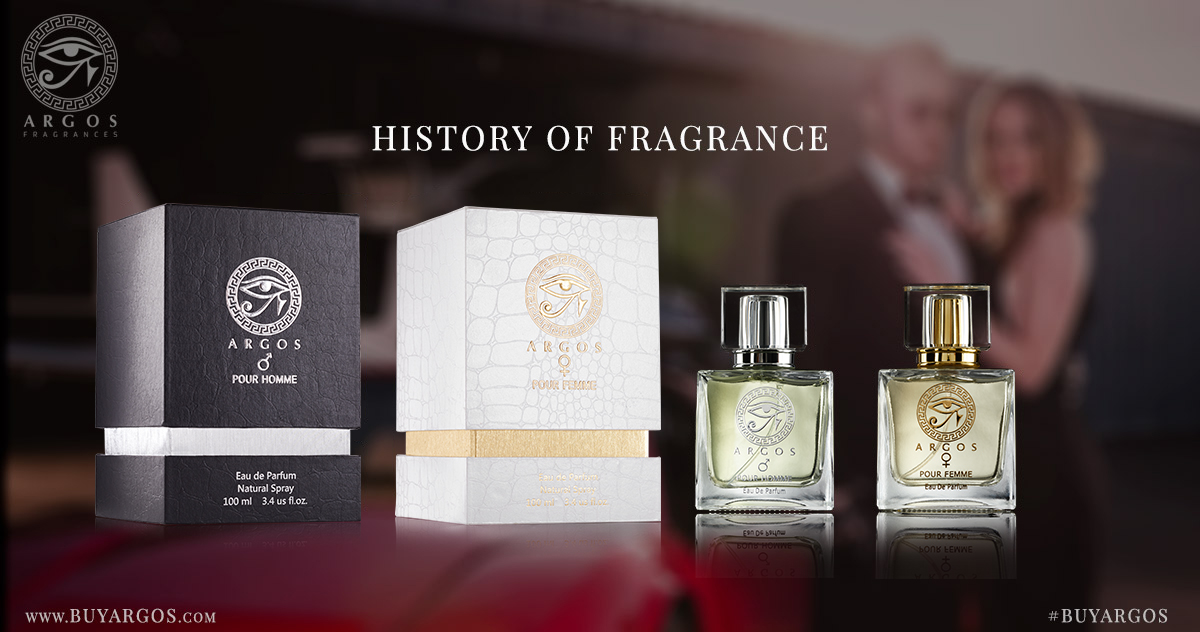argos, History of Fragrance
HISTORY OF FRAGRANCE
FRAGRANCE: WHERE IT ALL BEGAN
Perfume has been a sign of status, cleanliness, and ceremony for centuries. From ancient Egyptians rubbing scented oils on themselves to the perfumes and colognes we know today, fragrances have been known to set the tone. With the growing popularity of essential oils and a new celebrity releasing a perfume almost daily, it’s an interesting history lesson to know how the art of this all began.
Wearing fragrances first began in Ancient Egypt and was later developed and further refined by the Romans and the Arabs. According to ancient Egyptians, the fragrance was thought to be “sweat of the Sun God Ra.” They used perfumes for both ceremonial and beautification purposes and even had a God of Perfume, Nefertum, who was often pictured wearing a headdress made of water lilies, one of the biggest perfume ingredients of the time. High-status Egyptians smeared scented oils on their bodies to keep them fragrant.
Perfumes first began as oil-based products as opposed to today’s perfumes which are largely alcohol based. The world’s first recorded perfume chemist is a woman named Tapputi. Her existence was discovered on a Cuneiform tablet in 1200 BCE. She developed methods and techniques that would lay the basis for perfume making and passed on with her groundbreaking techniques in using solvents.
Many famous rulers prided themselves on their scent, such as Napoleon who was said to have two quarts of violet cologne delivered to him each week and have used SIXTY bottles of a double extract of jasmine each month! His wife, Josephine, was also keen on her scent and was partial to musk, so much so that even sixty years after her death her scent still lingered in her boudoir.
It was French explorers who finally brought the first scented colognes to the Americas. In the mid 20th century perfumes and colognes began to craze thanks to celebrity endorsements and designer scents. In 1985, Christian Dior created a scent called “Poison” that was advertised to create “feelings of love.” Its fragrance was so powerful that many New York restaurants banned it because “it was overcoming the aroma of the food.”
The 1990’s brought new fresh scents into perfumes, prompted by growing environmental awareness. With celebrities noticing the financial benefit of a perfume line, scents like White Diamonds by Elizabeth Taylor or JLo by Jennifer Lopez became wildly popular in the United States.
Today, niche fragrance companies, like Argos Fine Fragrances, are redefining the industry, offering specialty blends for women and men that cater to a specific luxury fragrance audience. Argos Pour Femme and Argos Pour Homme, for example, are distinguishing luxury niche fragrances that even the most discerning fragrance aficionado will appreciate and enjoy. Becoming a fan of your favorite fragrance brand allows you to infuse your life with special blends that invoke emotions and create lasting memories.


